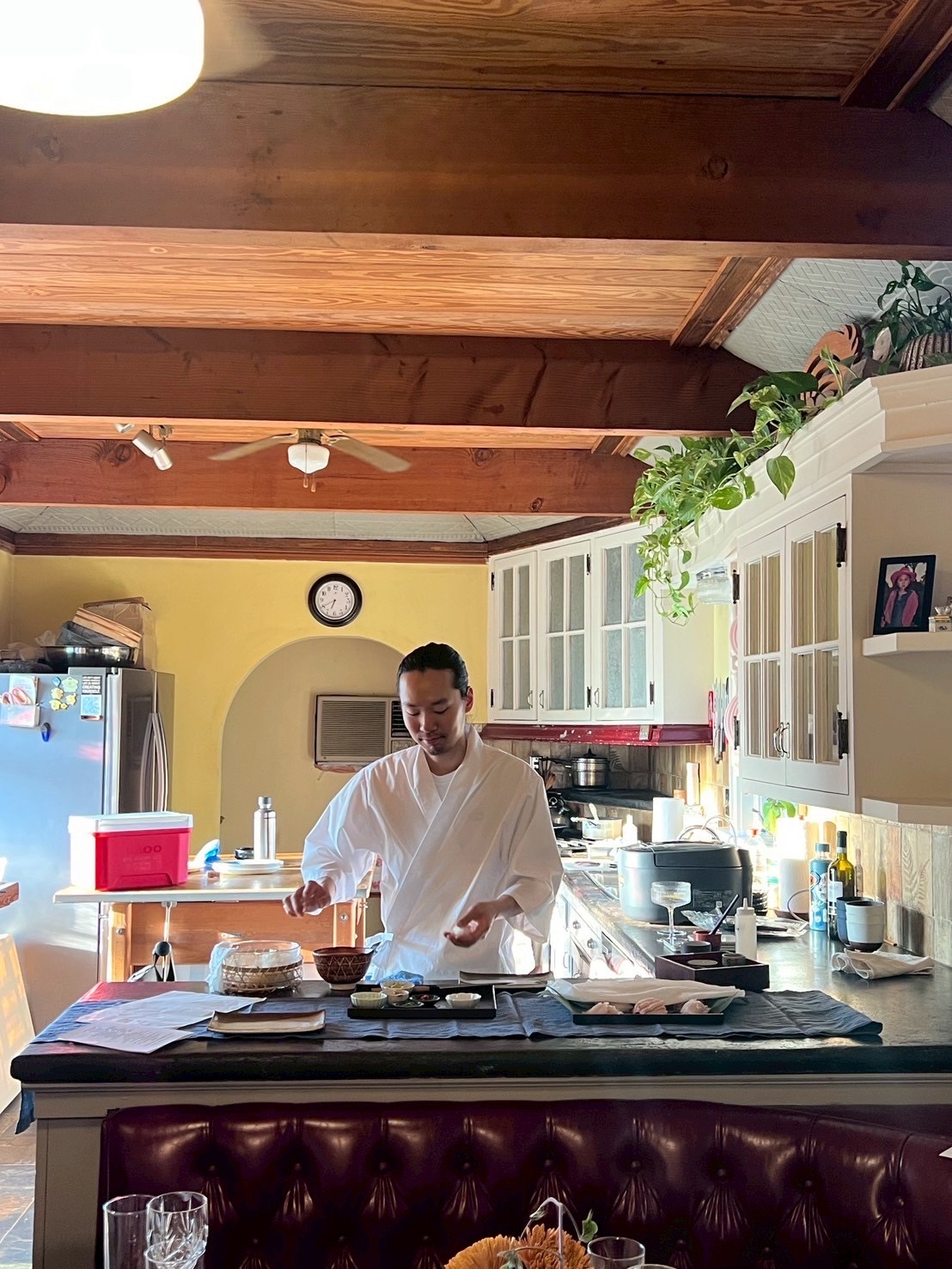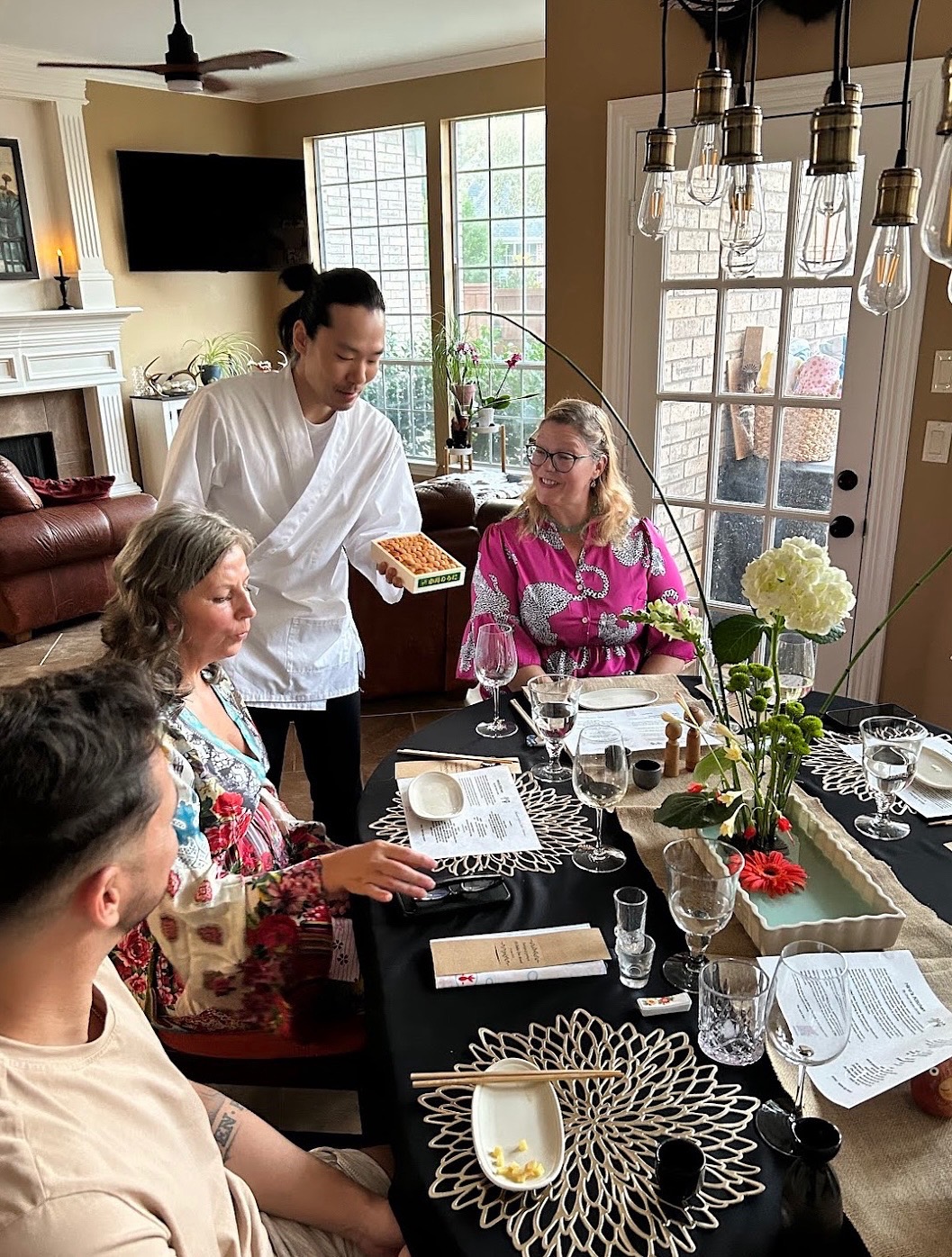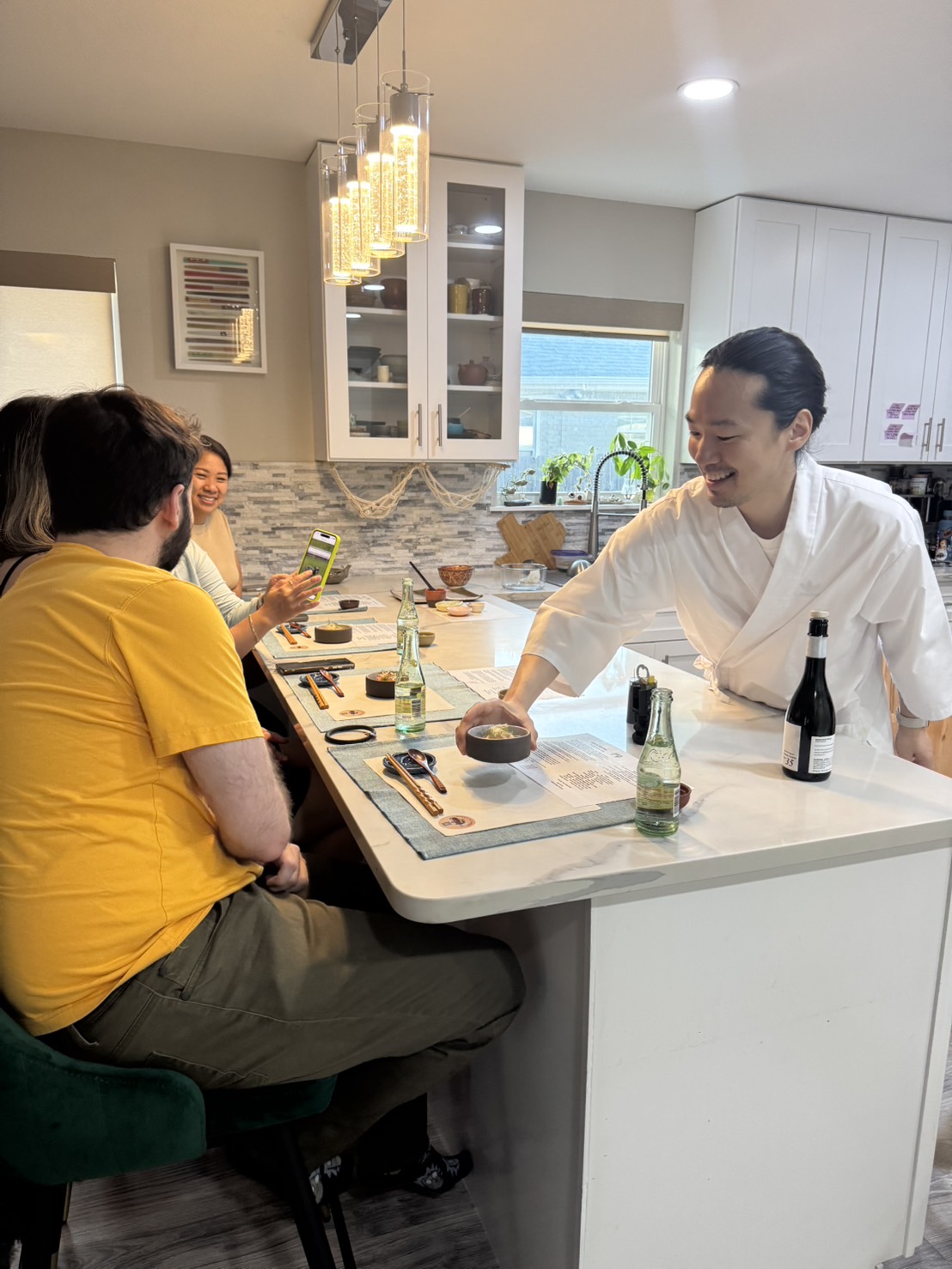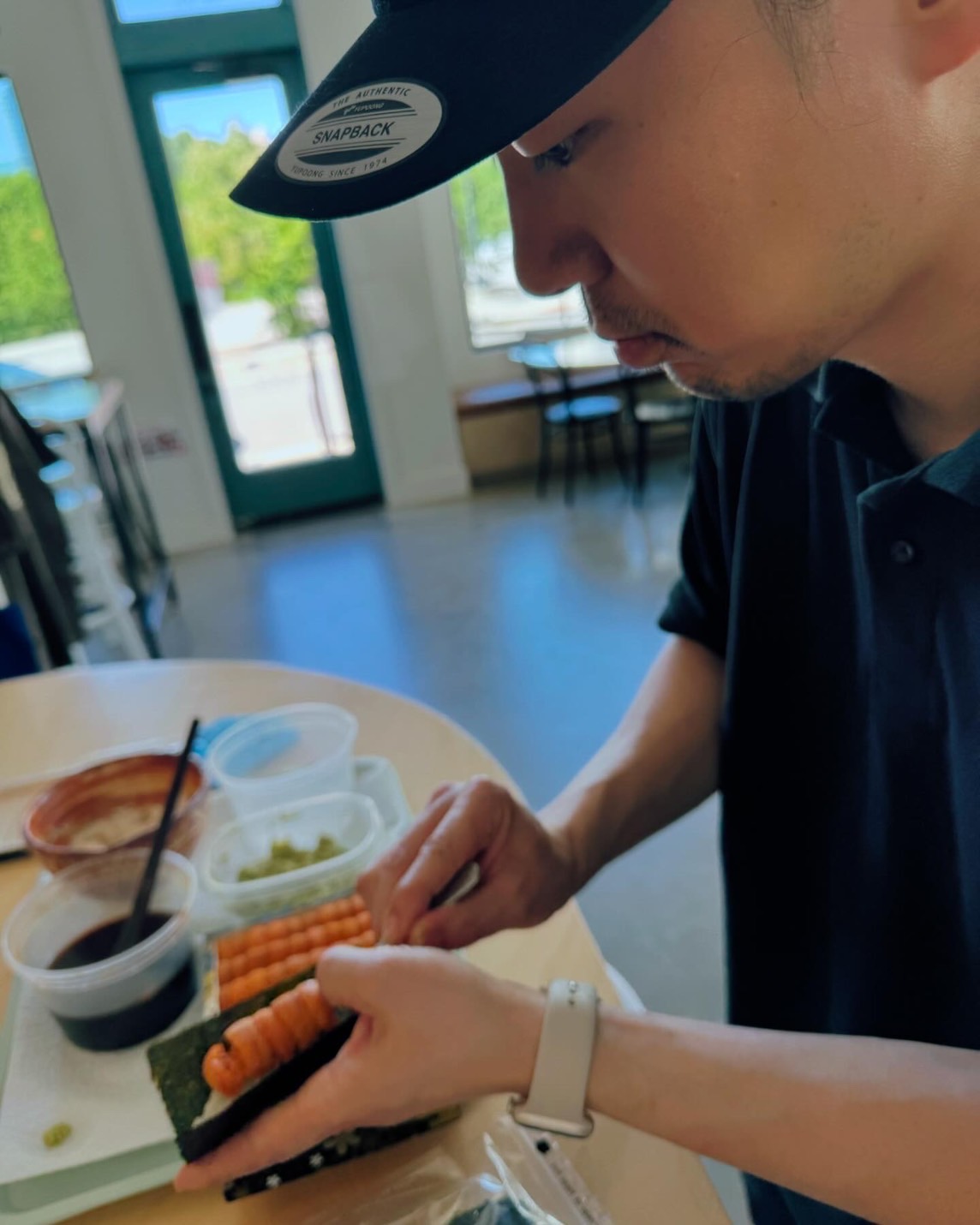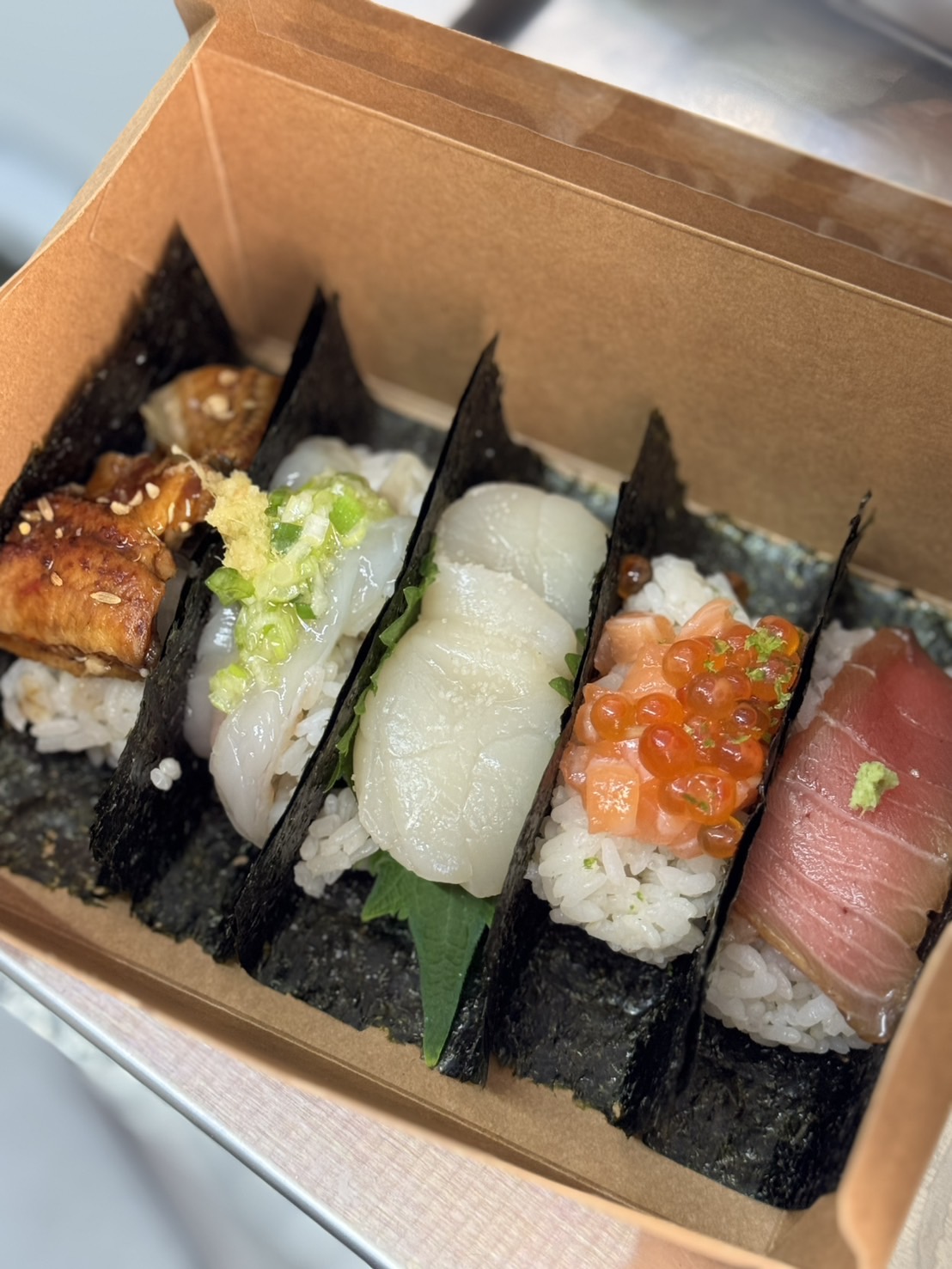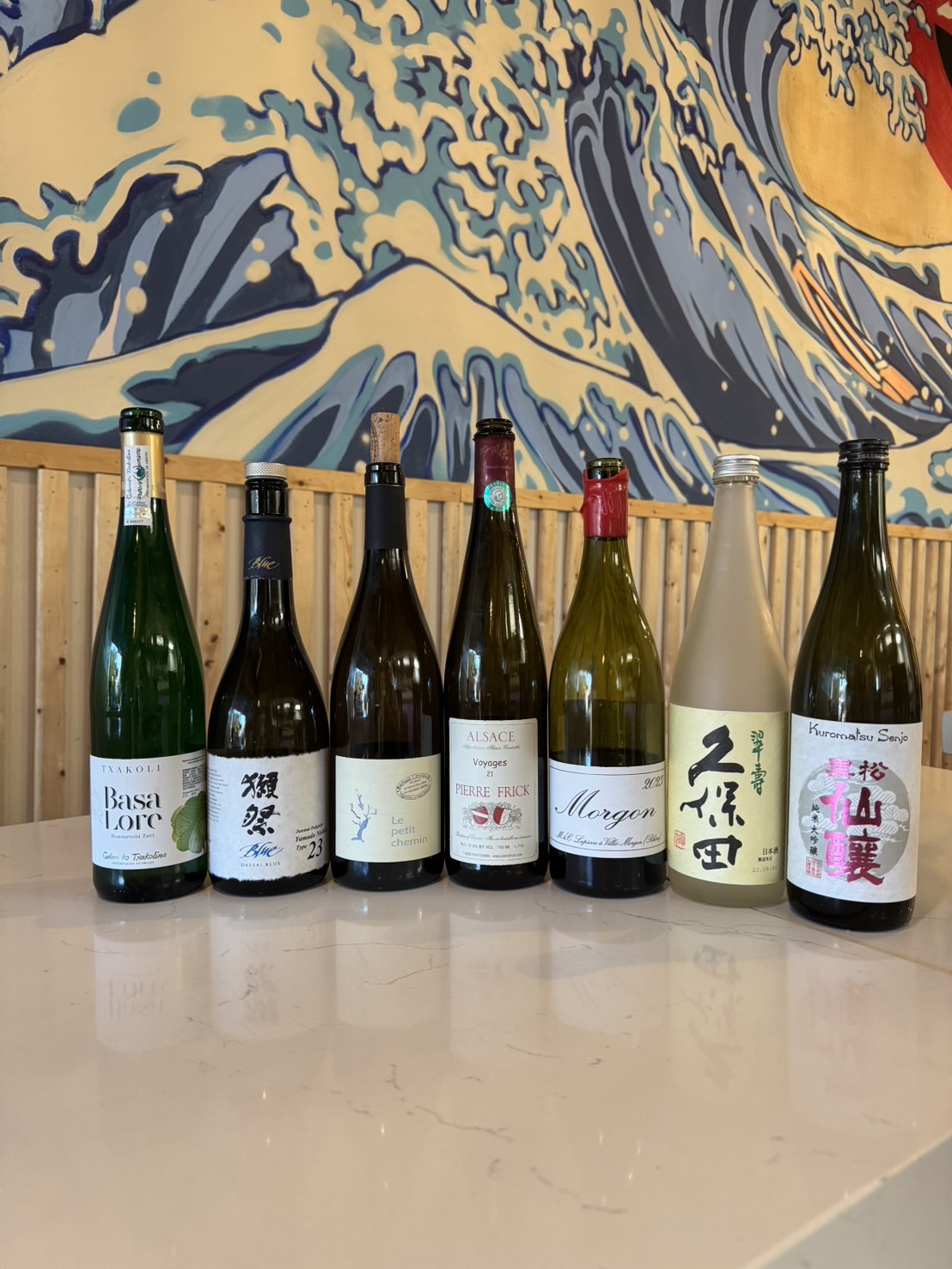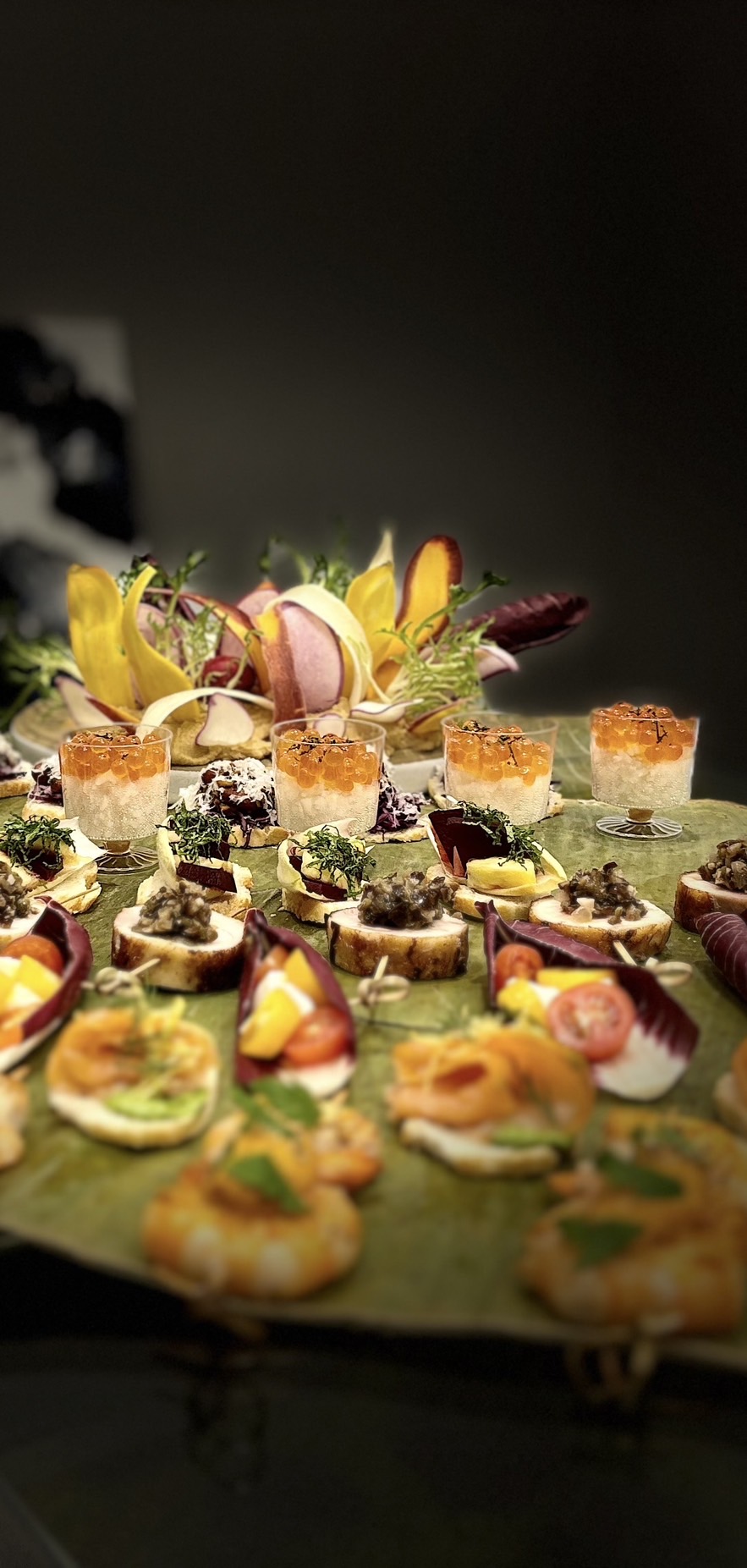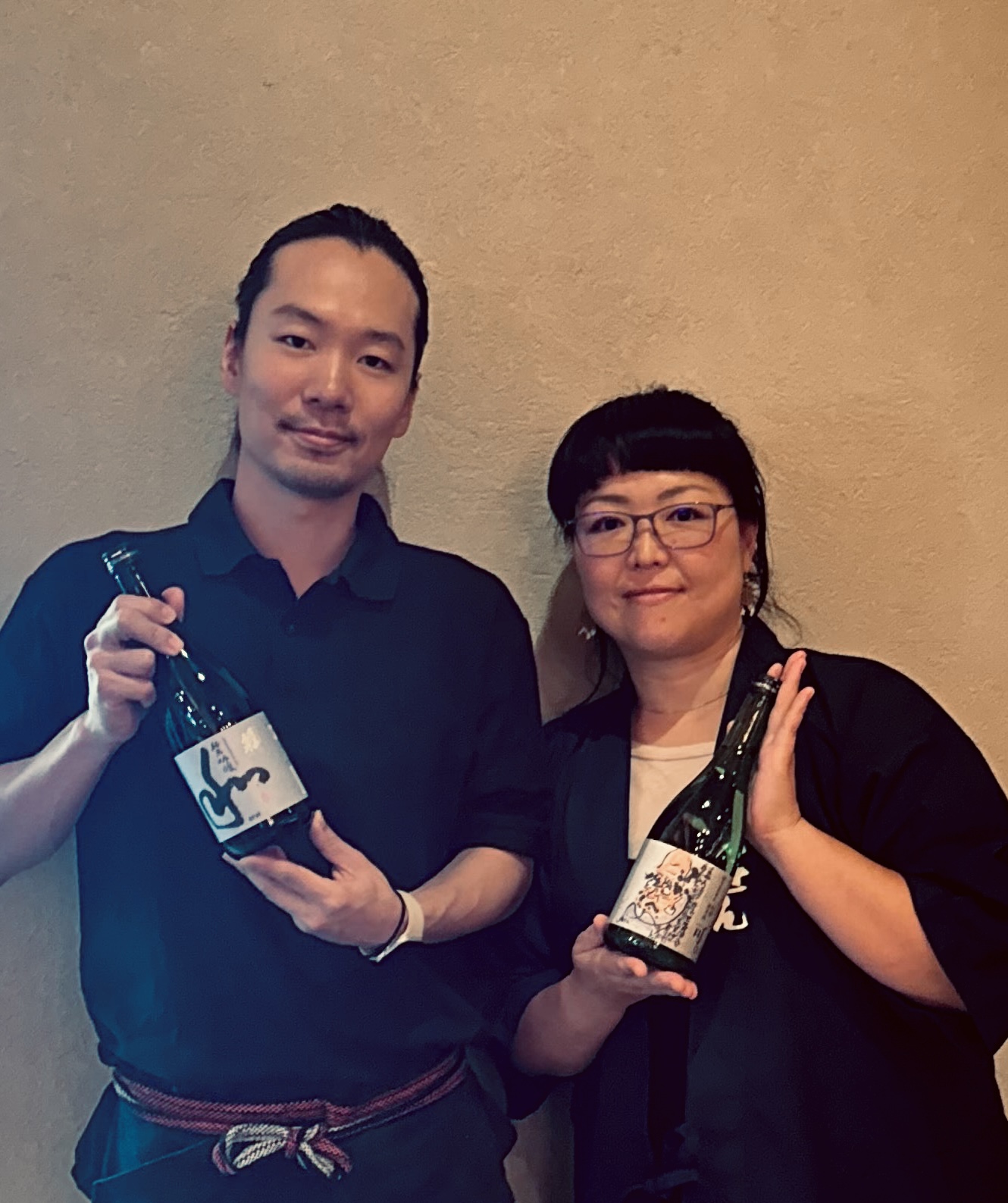

We’re looking forward to introducing you to Hiroto Ochiai & Namiko Ochiai. Check out our conversation below.
Hiroto & Namiko, we’re thrilled to have you with us today. Before we jump into your intro and the heart of the interview, let’s start with a bit of an ice breaker: What is something outside of work that is bringing you joy lately?
We really enjoy going out to eat and exploring new places to drink — that’s kind of our way to relax and get inspired. It’s been a year since we moved to Texas, but there are still so many spots we haven’t tried yet. When we find a place or flavor we love, it makes us genuinely happy. We also love spending time at local breweries and cafés — the DFW area has such a warm, creative community, and being part of that energy always feels good.
Can you briefly introduce yourself and share what makes you or your brand unique?
Hiro’s Kitchen is all about sharing memorable dining experiences inspired by Japanese ingredients, sake, and culture. Since Japanese cuisine and sake are still new to many people in Texas, we find joy in introducing their depth and beauty in a way that feels warm and approachable.
We serve sushi made with fresh fish flown in from Japan, along with modern dishes that reflect our backgrounds in Michelin-starred and international restaurants. Both of us are certified sake sommeliers, and we love creating thoughtful pairings that bring out the best in each dish. We also host special events featuring visiting sake breweries from Japan, where guests can meet the brewers in person — it’s always such a fun and unique experience.
Right now, we focus on private chef dinners and catering, bringing personalized omakase experiences directly to our guests. We’ve also been collaborating with local wine bars and restaurants around the DFW area, building connections with an amazing community that shares our love for great food and culture.
Next spring, we’re planning to open our first brick-and-mortar restaurant — a sushi, hand roll, and sake bar in Fort Worth’s Near Southside. Our goal is to keep expanding what we do, connecting more people to the richness of Japanese food and culture, and creating moments that stay in their hearts long after the meal.
Appreciate your sharing that. Let’s talk about your life, growing up and some of topics and learnings around that. What’s a moment that really shaped how you see the world?
Moving to the United States was a life-changing experience for us. Hiro, our chef, moved to New York about eight years ago, and it completely shifted the way he saw the world. In Japan, everything — the language, culture, and way of thinking — followed one shared rhythm. It was all Japanese, and that was the entire world I knew. But in the U.S., people come from so many different backgrounds, and what’s “normal” for one person might be completely different for another.
Through daily communication and working with people from diverse cultures, we learned how important it is to understand and appreciate those differences. At the same time, it made us more aware of our own identity as Japanese. Before that, we rarely thought consciously about being Japanese — it was just a given. But living abroad inspired us to rediscover and take pride in our roots.
That’s why so much of what we do now is centered around Japanese culture — from seafood and fermentation traditions like soy sauce, to the world of sake. Sharing these elements of our heritage through our cooking feels especially meaningful here in Texas, where diversity and open-mindedness create endless opportunities for connection and cultural exchange.
What did suffering teach you that success never could?
We’ve learned that the only way forward is to keep moving, even when it’s difficult. If you stop, you can’t progress. We often learn more from the times when things don’t go well than from moments of success. When something fails, it makes us reflect — to understand why, think about how to improve, do the research, and take action. Sometimes what used to work no longer does, or the same efforts don’t bring the same results. That’s when it’s most important to keep going, to adapt, and to stay consistent without fearing change.
Since moving to Texas, everything has changed — our work, our relationships, and our environment. Even when results didn’t come easily, we kept taking small steps forward. Along the way, we met people who appreciated what we do and expanded our circle of support. Thanks to them, we’ve been able to continue growing and finding new paths forward.
I think our readers would appreciate hearing more about your values and what you think matters in life and career, etc. So our next question is along those lines. What’s a belief or project you’re committed to, no matter how long it takes?
We’re committed to a long-term vision that goes beyond simply running a restaurant — we want to create a bridge that connects Japanese culture and craftsmanship with the world. Through our work in the restaurant industry, we hope to introduce more people to the beauty, depth, and creativity of Japan.
Take sake, for example. Many breweries in Japan are looking for ways to reach new audiences overseas. By being based in the U.S., we can help them share their story and products more effectively — through events, collaborations, and creative promotions. If more people abroad discover and enjoy sake, it allows breweries to produce more, farmers to grow more rice, and ultimately helps sustain the entire ecosystem of traditional craftsmanship. In a time when aging populations are making agriculture and sake production harder to maintain, we hope to contribute in a way that makes these professions both viable and inspiring for the next generation.
Our dream is to keep expanding these connections — creating our own original sake, hosting events that bring brewers and producers from Japan to the U.S., launching a microbrewery, and collaborating with chefs and restaurants who want to share their work globally. Above all, we want to keep celebrating Japanese culture ourselves and continue finding joy in sharing it with others, no matter how long it takes.
Before we go, we’d love to hear your thoughts on some longer-run, legacy type questions. How do you know when you’re out of your depth?
We realize we’re out of our depth when we stop focusing on the reasons why something can’t be done and start asking how we can make it happen. As a young business, we often face situations we’ve never experienced before, and of course, there’s always some fear of failure. But instead of stepping back, we try to take that first step — whether it means preparing earlier, asking for advice from someone more experienced, or seeking help when we need it. There’s always a way forward if we stay curious and flexible.
Saying “no” doesn’t build stronger relationships with our guests. So we choose to try — even if it’s challenging. Later, when we look back and reflect, we often realize we’ve grown and improved naturally through those experiences. That’s usually when we notice we’ve gone beyond our limits without even realizing it.
Contact Info:
- Website: https://hiroskitchentx.com
- Instagram: https://www.instagram.com/hiroskitchentx?igsh=MTBjNWlxOG5rZ3g5Nw%3D%3D&utm_source=qr
- Facebook: https://www.facebook.com/share/1Ep9xQqV4B/?mibextid=wwXIfr
